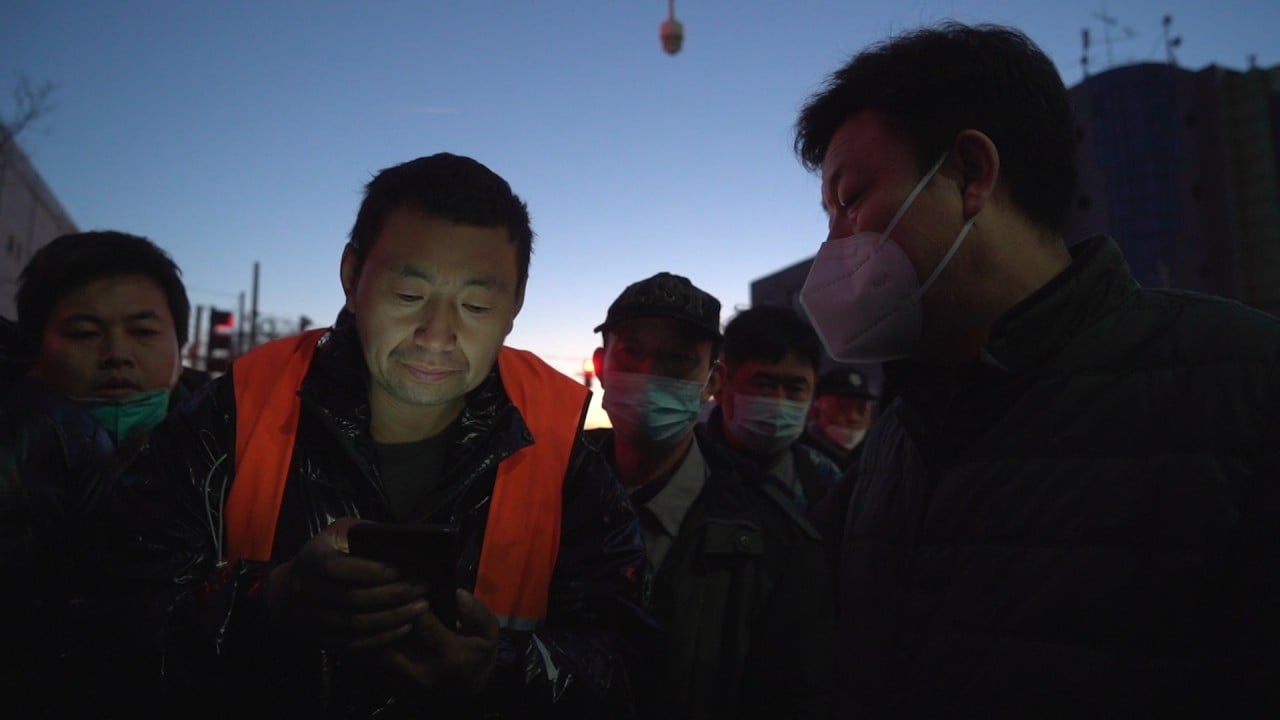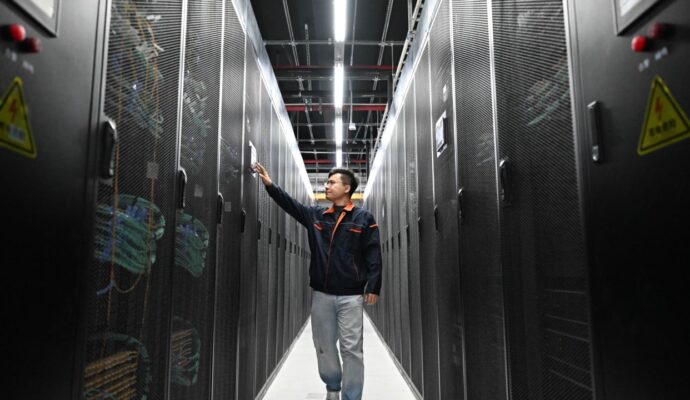“Spending too much time on data labelling sometimes makes my eyes and neck a bit uncomfortable, especially when dealing with large amounts of text. It can be nauseating,” Li said. Prior to joining the data-labelling base in August, she worked as a kindergarten teacher for two years, which was her major in junior college. But she quit her job, as it was exhausting and paid very little.
“Data labelling can be done from home with just a computer, without worrying about losing the job due to the pandemic or some natural disasters,” Li said. “This is not a technical position requiring expertise, and the threshold is low. It’s worth trying.”
Li is among the many young jobseekers in China who are turning to emerging industries that are more flexible and may serve as a transition in their career trajectory. Meanwhile, Chinese authorities are under immense pressure to create more jobs by promoting these industries as a “new form of employment” to address persistent and high levels of youth unemployment.
Creating enough jobs has been highlighted among the priorities of policymakers as they try to maintain economic and social stability in a year when the economy continues to reel from the lingering impact of China’s restrictive zero-Covid policy. The battered economy, meanwhile, showed signs of losing growth momentum in the just-ended second quarter.
Data labelling is still considered an emerging industry even though the first such firm in China was established 18 years ago in Hubei province. For the past five years, the industry has grown in China by an annual rate of more than 15 per cent.
As the work of data labellers is simple and repetitive, most companies choose to operate in China’s second- and third-tier cities, as these can offer cheap, young labour.
“The salary is really not enough to cover my living expenses,” Li added. “I might resign in the second half of this year and try to land a clerical job with higher pay.”
Data-labelling companies operate like factories, and data labellers’ jobs are similar to those of workers on assembly lines
Li said the base salary for a data labeller at Baidu is 3,080 yuan (US$425) a month. Even their supervisors earn only from 4,500 to 5,000 yuan, which means there is not much room for salary growth as a data labeller.
“Generally, there are lots of university interns and graduates working here. Because of the relatively low salary, they are all temporary workers,” Li said.
Xiao Yunzhou, the founder of a data-labelling company based in Shandong province, said that in addition to the regular recruitment process, another important way they obtain manpower is through cooperation with vocational schools.
To promote youth employment, China in 2017 launched a policy of “deepening industrial and educational integration”. And last month, authorities said that companies in emerging industries should participate in the curriculum and internship designs at vocational schools.
Most of the students from nearby vocational schools are taking up repetitive labelling jobs in Xiao’s company, earning a basic salary of around 1,000 yuan per month – much less than at Baidu because Xiao’s workers are still students. Xiao said such collaboration reflects the company’s need for manpower, as data labelling requires a lot of cheap and low-skilled labour.
“Data-labelling companies operate like factories, and data labellers’ jobs are similar to those of workers on assembly lines,” Xiao said. “For most young people in our company, they would not have chosen this job if they had better opportunities, as most of them cannot suffer the tediousness of the job.”
Young people are now struggling to land a suitable job, as the unemployment rate in China’s 16-24 age group reached a record high 20.8 per cent in May.
Meanwhile, more than 1 million overseas students are going to come back and enter China’s workforce, which means the total number of fresh university graduates seeking employment will exceed 12.5 million this year.
The intense competition for employment in China has also led to an increase in demand for studying abroad. The number of study-abroad consultations from January to May soared by 43 per cent compared with the same period in 2022, according to the latest statistics by the Education International Cooperation group.
“I have clearly noticed a growing trend of overseas students joining study abroad agencies, including my classmates, colleagues and students who sought advice before, especially those majoring in humanities and social science,” said Tara Han, 29, who graduated in February from South Korea’s Kyung Hee University.
“This job is often seen as a last choice for many people. Nobody wants to spend so much money studying abroad, only to end up working as a study-abroad agent. Most take on this job as a temporary solution or part-time job to supplement their income,” added Han, who holds a master’s degree in business administration.
Although Kyung Hee University is ranked 49th in the QS Asia University Rankings 2024, Han still chose to work as a South Korean education counsellor, setting up her own study-abroad agency after graduation. Han added that she got relevant experience working at an educational institution before pursuing postgraduate studies.
“Educational qualifications are not necessarily everything,” Han said. “My colleagues are also from those universities with high QS rankings.”
Han pointed out that Korean is a minority language, so the relevant employment opportunities are limited. Few Korean companies and language-training institutions are based in Xuzhou, a third-tier city in Jiangsu province where she lives. That means the local job market has a smaller demand for Korean language skills compared with the supply, making it difficult for her to be employed.
Since February, Han’s study-abroad agency has hired three full-time and six part-time employees, some of whom are still studying at university. They have helped around 200 to 300 students study abroad in Korea, and the process costs each student about 3,000 to 6,000 yuan.
“As a counsellor, I need to be available online nearly 24 hours a day (to communicate with students and their parents),” Han said. “Study-abroad agencies are also a kind of service industry.”
Chen Jianwei, an associate researcher with the Institute of Education and Economy Research at the University of International Business and Economics, noted how employment is encompassing a wide range of service industries.
“China’s economy is transforming to the tertiary sector, which means that employment is also undergoing the same process,” Chen said. “The trend of new forms of employment indicates that the job market is transforming towards skill-intensive and platform-based service industries.”
More service-oriented industries are developing under the transformation, and the medical-escort service is one of them.
Wang Shuyu chose to become a medical escort in the northwestern Chinese city of Xian because she was tired of the clerical jobs that she had been doing for three years.
“The main duty of a medical escort is to run errands for patients,” Wang said.
What she earns is based on the number of clients she takes. Wang normally takes 25 clients a month, with charges ranging from 150 to 300 yuan per client.
Her daily duties include picking up medications and lab reports, assisting patients with registration, and doing research on doctors’ expertise.


